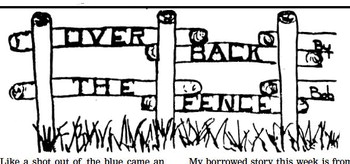Like a shot out of ….


Like a shot out of the blue came an e-mail this morning to tell me, because of the holiday on Wednesday, the TRG will need early copy. All I can say is, sure nice I was kind of half-...


Like a shot out of the blue came an e-mail this morning to tell me, because of the holiday on Wednesday, the TRG will need early copy. All I can say is, sure nice I was kind of half-...